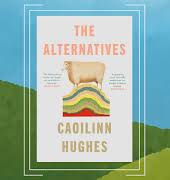
By Jennifer McShane
30th Sep 2015
30th Sep 2015
This may be the news that all fashionistas have waited for. By the powers invested in science, a team of researchers in Berlin have conducted a study and confirmed that yes; to have a shopping addiction is a very real thing. We knew it.
Researchers from Norway’s University of Bergen have created The Bergen Shopping Addiction Scale, a questionnaire that uses seven diagnostic addiction criteria to determine whether a person is a shopping addict, plus how severe their addiction may be. They tested it on 23,537 study participants and published the results in the journal Frontiers in Psychology.
Among other findings, scientists discovered that women are more likely to be shopping addicts (no surprises there), and the addiction tends to start in a person’s late teens.
Take the test, below to see if you too suffer from this:
Answer the following questions with ?completely disagree, disagree, neither disagree nor agree, agree, and completely agree:?
1. You think about shopping/buying things all the time.
2. You shop/buy things in order to change your mood.
3. You shop/buy so much that it negatively affects your daily obligations (e.g., school and work).
4. You feel you have to shop/buy more and more to obtain the same satisfaction as before.
5. You have decided to shop/buy less, but have not been able to do so.
6. You feel bad if you for some reason are prevented from shopping/buying things.
7. You shop/buy so much that it has impaired your wellbeing.
If you answer ?agree? or ?completely agree? on at least four of the seven items, you may be a shopping addict. (Is it bad that we answered ?yes? to all seven questions?!)
Certain personality traits make someone more likely to be a shopping addict, according to the study. Researchers found that those who had higher levels of extroversion and neuroticism were more likely to be compulsive buyers. People who suffer from anxiety, depression, and low self-esteem were also at risk.
So, the next time your other half/family member/BFF complains about your need to buy that pair of shoes, kindly show them this test and reiterate that the struggle is real in a serious way.
The good news about all this, however, is that you’re not alone in your struggles. It is on the rise, and the addiction naturally isn’t helped by the popularity of online shopping.
Study co-author Cecilie Schou Andreassen, Ph.D., a clinical psychologist and professor at the University of Bergen told Yahoo Health that shopping addiction might be on the rise. ?It is likely that new Internet-related technologies can greatly facilitate the emergence of problematic shopping behavior because of factors such as accessibility, affordability, anonymity and convenience,? she explained.
Study co-author Elias Aboujaoude, MD, a Stanford University psychiatrist added that the prevalence of online shopping definitely hasn’t helped.
?Now that money has gone virtual; it is even less rooted in a physical or real transaction, possibly leading to more over-shopping and overspending,? he continued.
Andreassen said there was no well-documented treatment for effective shopping addiction, but financial counselling, individual and group therapy, self-help tips, and even medications have been proposed by some experts.
As we said above, we always it was a real thing. How did you fair on the test??
Via Yahoo Health























